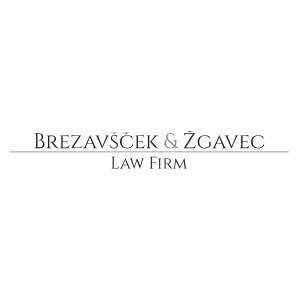Best Due Diligence Lawyers in Ljubljana
Share your needs with us, get contacted by law firms.
Free. Takes 2 min.
List of the best lawyers in Ljubljana, Slovenia
About Due Diligence Law in Ljubljana, Slovenia
Due Diligence in Ljubljana, Slovenia, refers to the comprehensive appraisal of a business or its assets before engaging in a business transaction. This process is critical in identifying potential liabilities, financial health, legal rights, and other critical elements. The aim is to ensure informed decision-making for mergers, acquisitions, or other financial transactions. Due Diligence covers various areas including financial, legal, IT, and environmental reviews. In Ljubljana, local and international business transactions are subject to Slovenian laws and regulations, making legal assistance crucial for compliant and successful due diligence.
Why You May Need a Lawyer
Legal assistance in Due Diligence is vital for several reasons:
- Complexity of Transactions: Large-scale or cross-border transactions often involve obscure legal stipulations and intricate details requiring expert analysis.
- Regulatory Compliance: Ensuring your dealings are in line with Slovenian corporate laws and regulations helps avoid legal disputes.
- Risk Assessment: A lawyer can aid in identifying financial and legal risks associated with the transaction.
- Contract Negotiation: Experienced lawyers facilitate negotiations ensuring favorable terms in contracts.
- Intellectual Property Rights: Protecting IP rights is crucial in acquisitions, necessitating legal insights.
Local Laws Overview
Due Diligence practices in Ljubljana must align with Slovenian legal frameworks, which include:
- Corporate Law: Governs the establishment, organization, and dissolution of businesses. Adherence to the Companies Act is critical.
- Competition Law: Ensures fair market practices and prevents anti-competitive agreements and abuse of dominant positions.
- Tax Regulations: Due diligence involves assessing the tax implications, necessitating compliance with local taxation laws.
- Employment Law: Evaluating employee contracts and labor law obligations is essential during acquisitions.
- Environmental Regulations: Ensuring that assets or operations comply with environmental standards and liabilities.
Frequently Asked Questions
What is the purpose of Due Diligence?
The primary purpose is to gather and verify facts about a business to assess risks and benefits before finalizing a deal.
When is Due Diligence necessary?
It's necessary during mergers, acquisitions, partnership agreements, and investment opportunities to prevent unforeseen obligations.
Who performs Due Diligence?
A team of experts, including financial analysts, legal advisors, and industry-specific specialists, typically conducts due diligence.
How long does Due Diligence take?
The duration varies based on the complexity of the transaction, generally ranging from a few weeks to several months.
What are common due diligence challenges?
Challenges include incomplete data, legal compliance issues, undisclosed liabilities, and cultural differences in cross-border deals.
What documents are needed for Due Diligence?
Essential documents include financial statements, legal contracts, corporate records, employee agreements, and compliance certificates.
Can Due Diligence uncover fraud?
Yes, meticulous due diligence can reveal discrepancies indicative of fraud or misrepresentation.
Is Due Diligence legally mandatory?
While not always mandatory, it is a standard practice crucial for informed decision-making and risk mitigation.
What are the risks of skipping Due Diligence?
Skipping due diligence can lead to unforeseen liabilities, financial losses, regulatory penalties, and damaged reputation.
How is Due Diligence different from an audit?
While an audit verifies financial statements' accuracy, due diligence evaluates broader operational and financial aspects.
Additional Resources
For further guidance, consider reaching out to the following resources:
- Slovenian Chamber of Commerce: Offers support and guidance on business practices in Slovenia.
- Ministry of Economic Development and Technology: Provides information on business regulations and economic policies.
- Business Register of Slovenia: Key resource for checking company information and registration details.
Next Steps
If you require legal assistance in Due Diligence, consider the following steps:
- Research: Begin by gathering preliminary information about potential law firms or legal experts specializing in due diligence.
- Consultation: Schedule consultations to discuss your specific needs and understand the scope of services offered.
- Engagement: Choose a lawyer based on expertise, experience, and compatibility with your business objectives.
- Collaboration: Work closely with your legal team to ensure thorough analysis and due diligence execution.
Engaging experienced legal counsel in Ljubljana will provide invaluable support throughout the due diligence process, protecting your interests and facilitating smooth transactions.
Lawzana helps you find the best lawyers and law firms in Ljubljana through a curated and pre-screened list of qualified legal professionals. Our platform offers rankings and detailed profiles of attorneys and law firms, allowing you to compare based on practice areas, including Due Diligence, experience, and client feedback.
Each profile includes a description of the firm's areas of practice, client reviews, team members and partners, year of establishment, spoken languages, office locations, contact information, social media presence, and any published articles or resources. Most firms on our platform speak English and are experienced in both local and international legal matters.
Get a quote from top-rated law firms in Ljubljana, Slovenia — quickly, securely, and without unnecessary hassle.
Disclaimer:
The information provided on this page is for general informational purposes only and does not constitute legal advice. While we strive to ensure the accuracy and relevance of the content, legal information may change over time, and interpretations of the law can vary. You should always consult with a qualified legal professional for advice specific to your situation.
We disclaim all liability for actions taken or not taken based on the content of this page. If you believe any information is incorrect or outdated, please contact us, and we will review and update it where appropriate.

















